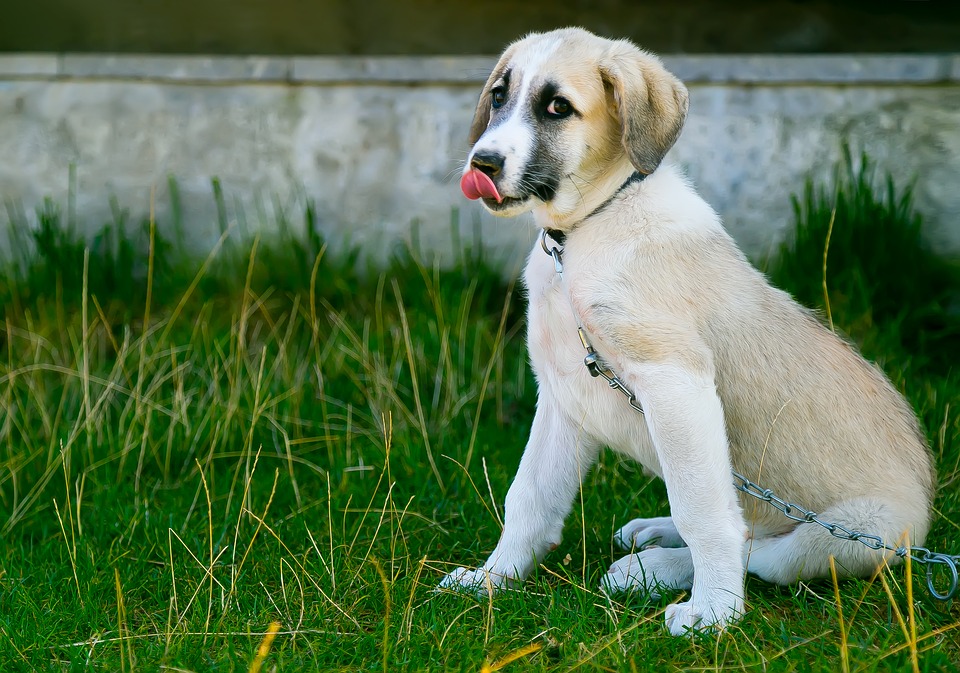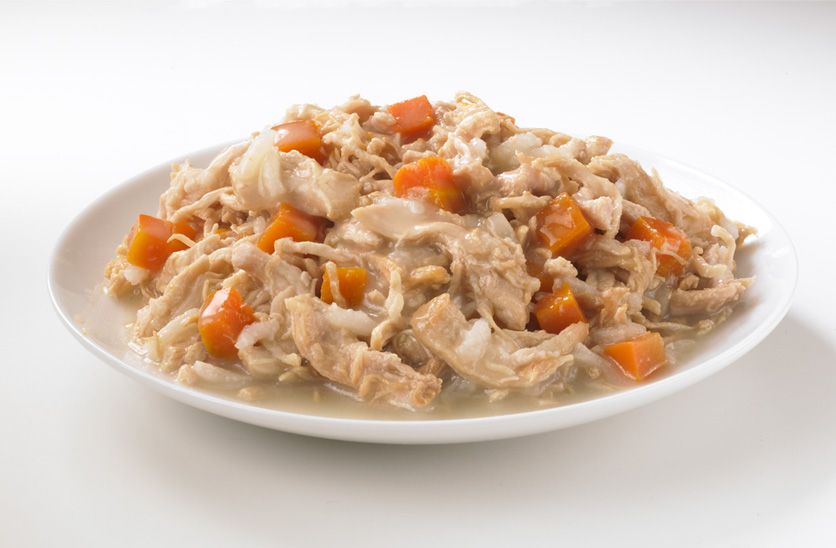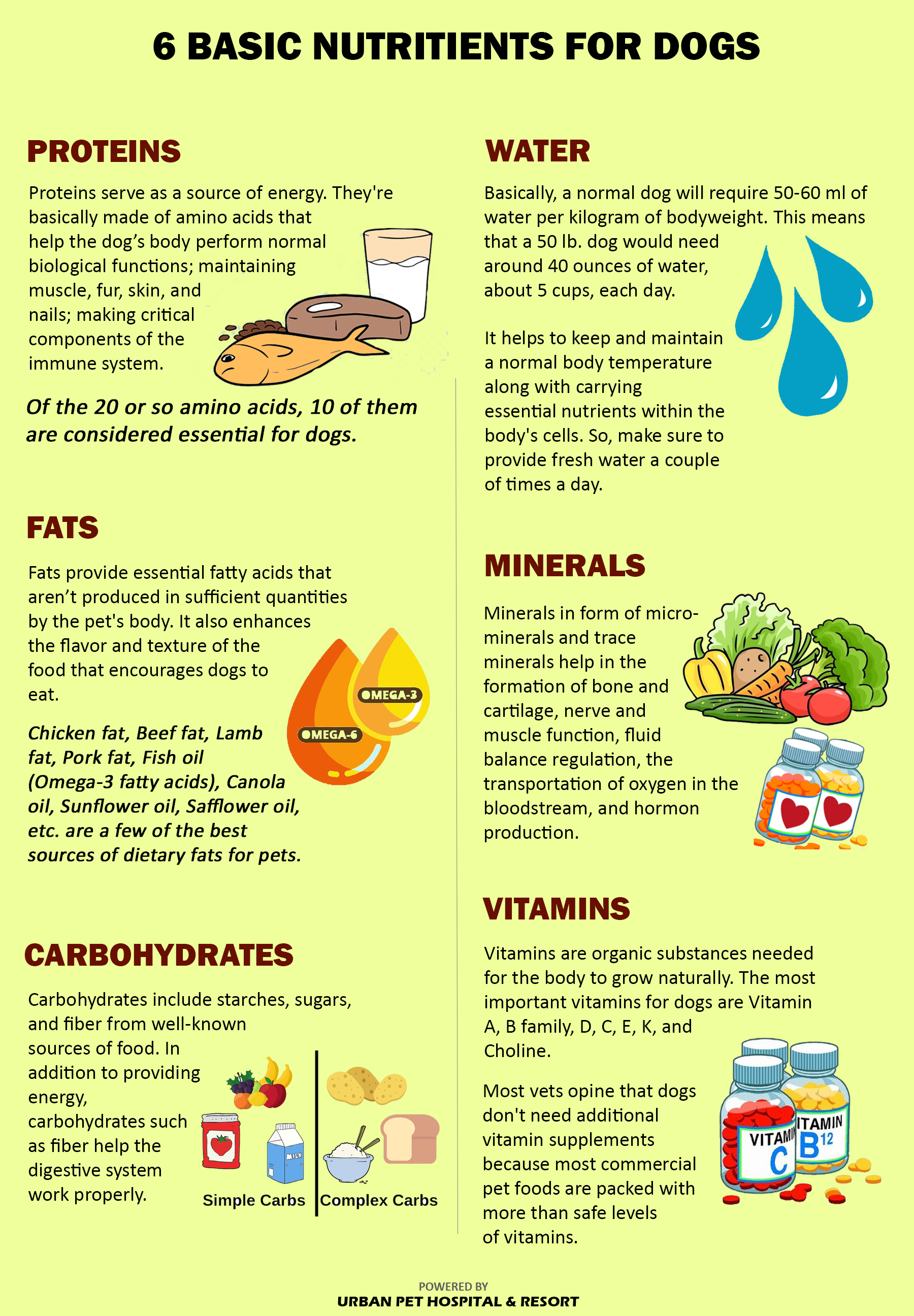
"What should I feed my dog?" is perhaps the most asked question by pet owners. Each dog has different nutritional needs but an appropriate amount of well-balanced diet is vital for its overall health.
A proper dog diet is defined by the availability of six basic nutrients that are water, proteins, fats, carbohydrates, minerals, and vitamins.
Most dog foods including home prepared and commercial dog food lack vital minerals and vitamins. Pet owners often provide supplements to provide any missing minerals. However, you must be very aware of the maximum tolerable amounts of some nutrients because an overdose could lead to toxicity.
Let’s take a look at dog nutrition and supplements in detail.
What are the nutritional requirements for dogs?
As mentioned above, dogs require six basic nutrients from their food on a daily basis.
Proteins

Proteins should cover 30% of the nutritional value of pet food on a daily basis. Proteins serve as a source of energy. They're basically made of amino acids that help the dog’s body perform normal biological functions; maintaining muscle, fur, skin, and nails; making critical components of the immune system; and forming enzymes that catalyze chemical reactions in cells.
Of the 20 or so amino acids, 10 of them are considered essential for dogs.
The daily intake of essential amino acids is important because pets can’t produce them in their own bodies or simply can’t make enough of them. Dietary proteins come from many different ingredients, including chicken, beef, turkey, lamb, fish, rabbit, and eggs.
Eating too little protein forces dogs to break down muscles and other tissues in order to gain amino acids which can eventually lead to muscle wasting, immune dysfunction, etc. Some dogs may have protein allergy or sensitivity. In such cases, the vets suggest that you should try a different protein.
Fats

Dietary fats should contribute 25% of a dog's daily nutrient requirements. It typically comes from animal fats and seed oils. Fats provide essential fatty acids that aren’t produced in sufficient quantities by the pet's body. It also enhances the flavor and texture of the food that encourages dogs to eat.
Chicken fat, Beef fat, Lamb fat, Pork fat, Fish oil (Omega-3 fatty acids), Canola oil, Sunflower oil, Safflower oil, etc. are a few of the best sources of dietary fats for pets.
The lack of dietary fats in food can lead to dry, itchy skin, and a dull coat. However, too much fat can make your pet obese.
You should keep the intake of fats in check and avoid giving them extra treats and table scraps. The sudden intake of high-fat foods can trigger pancreatitis – a painful inflammation of the pancreas.
Carbohydrates

Carbohydrates should cover the most amounts of nutrients in dog food. It typically makes up anywhere from 30-70 percent of dog food.
Carbohydrates include starches, sugars, and fiber from well-known sources of food. In addition to providing energy, carbohydrates such as fiber help the digestive system work properly.
It comes from sweet potatoes, potatoes, and peas, Barley (pearled), Oats, Brown rice, whole wheat, whole corn, but also from lentils and garbanzo beans.
Extra fiber can be added to some diets to help overweight pets feel full so they don't beg for more food.
In some cases, the veterinarian may suggest supplemental fiber for your pet to help maintain healthy stool consistency.
Water

Basically, a normal dog will require 50-60 ml of water per kilogram of bodyweight. This means that a 50 lb. dog would need around 40 ounces of water, about 5 cups, each day.
The daily requirement of water may also depend on the physical activity and age of your dog. Puppies require more water than adult dogs because it helps t grow and build muscles and help digest their food. The indoor dog requires less amount of water than the dogs that spend time outdoors.
It helps to keep and maintain a normal body temperature along with carrying essential nutrients within the body's cells. So, make sure to provide fresh water a couple of times a day.
Dog’s Daily Supplements

Minerals and vitamins are mostly categorized into dog food supplements mainly because most commercial pet food and homemade dog food don’t contain enough minerals and vitamins. Upon concluding that your pet food doesn’t provide enough mineral and vitamin, the vets will prescribe additional minerals such as micro-minerals and trace minerals and Vitamin D to dogs
Minerals

Minerals in form of micro-minerals and trace minerals help in the formation of bone and cartilage, nerve and muscle function, fluid balance regulation, the transportation of oxygen in the bloodstream, and hormone production.
Minerals also work together to coordinate various body functions and maintain normal activities on a daily basis.
A dog may need micro-minerals such as calcium, phosphorus, magnesium, sodium, chloride, and potassium; and trace minerals such as iron, zinc, copper, chromium, iodine, selenium, and manganese.
A healthy pack of dog food should include all the required micro-minerals and trace minerals. If
Vitamins

Vitamins are organic substances needed for the body to grow naturally. The most important vitamins for dogs are Vitamin A, B family, D, C, E, K, and Choline.
Most vets opine that dogs don't need additional vitamin supplements because most commercial pet foods are packed with more than safe levels of vitamins.
The report submitted by the FDA (Food and Drug Administration) suggests that several popular brands of dog food have 70x the safe levels of Vitamin D which could kill dogs.
Vitamin D Toxicity is common in many dogs that are feed Vitamin D supplements. The toxicity is a buildup of excess calcium in the blood (hypercalcemia) which can cause various physical and mental ailments such as nausea, vomiting, weakness, or even kidney failure and death.
Things to Know about Dog Nutrition
Here are the answers to some of the most frequently asked questions by pet owners.
Should dogs only eat raw foods?
Domesticated dogs have adapted to consume diets provided by their human companion. Dogs can actually digest complex carbohydrates more easily once they've been cooked. The intake of a raw diet often carries a number of risks.
What should you look for in dog food?
Always look for the ingredients when buying premium dog foods. Here are some general tips to help you decide better.
Select diets with real, recognizable, whole-food ingredients. If the majority of the listed ingredients are unfamiliar to you, find another diet.
Select a low-calorie diet. Your dog's diet should contain a relatively small number of calories per cup; ideally less than 350 calories. If your dog food contains 500 calories per cup and you have a 20-pound dog, the amount you should feed is tiny. The calorie intake depends on your dog's lean weight.
30 x weight in kg (or pounds divided by 2.2) + 70 = daily caloric needs.
How often should you feed your dog?
You should feed your dog on a regular interval of basis and up to two or three times a day. Puppies would need to eat more than three times a day. Dogs with obesity should only be fed twice a day.
Here is the important information on infographics about Essential Things to Know about Dog Nutrition & Supplements.

Urban Pet Hospital & Resort is the best doggy daycare in Urbandale. Get in touch with our certified veterinarian to learn more about your dog's diet and nutritional requirements.